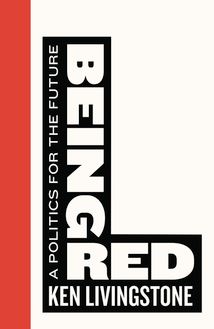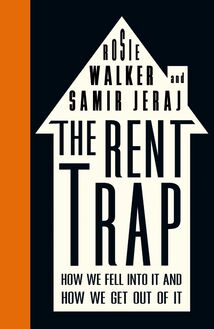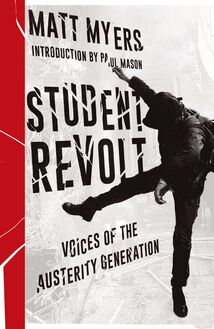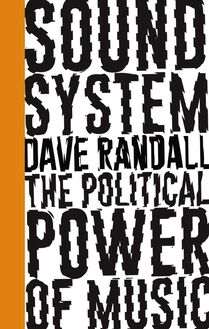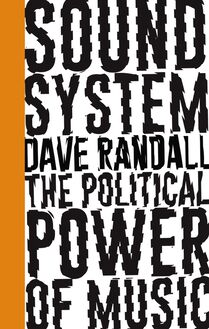Student Revolt , livre ebook
107
pages
English
Ebooks
2017
Vous pourrez modifier la taille du texte de cet ouvrage
Obtenez un accès à la bibliothèque pour le consulter en ligne En savoir plus
Découvre YouScribe en t'inscrivant gratuitement
Découvre YouScribe en t'inscrivant gratuitement
107
pages
English
Ebooks
2017
Vous pourrez modifier la taille du texte de cet ouvrage
Obtenez un accès à la bibliothèque pour le consulter en ligne En savoir plus
Publié par
Date de parution
20 octobre 2017
Nombre de lectures
2
EAN13
9781786801616
Langue
English
Whatever happened to the student revolt? In 2010 young people across Britain took to the streets to defy a wave of government attacks on education, increasing tuition fees, and cuts to grants for college students. Months of occupations, kettling and outbreaks of violence ensued, but to what effect? Today, students face new attacks on higher education from the current Conservative government.
Student Revolt tells the story of the year that introduced a generation to the power of mass movement, through the voices of the people involved. Activists', students', university-occupiers', young workers' and politicians' testimonies are woven together to create a narrative which starkly captures both the deep divisions as well as the intense energy that sprung from its actors.
The 'Millbank Generation' has since moved on - some fell into political inactivity - but many went on to explore different forms of politics, where they continue to fight. This book will provide a poignant reminder of the revolt for today's activists, as well as an opportunity to reflect on its many lessons.
Published in partnership with the Left Book Club
Series Preface
Acknowledgements
List of Abbreviations
Introduction by Paul Mason
1. Revolt
2. Millbank
3. Expectations
4. Street Fighting Youth
5. Occupy, Agitate, Organise
6. Why Did the Students Lose?
Conclusion
List of Contributors
Notes
Bibliography
Index
Publié par
Date de parution
20 octobre 2017
Nombre de lectures
2
EAN13
9781786801616
Langue
English
Student Revolt
Join the Left Book Club
Membership of the Left Book Club costs just 40 a year, for which you will receive four specially commissioned or licensed titles each year, plus other members benefits, such as access to events, newsletters, and special offers on non-LBC titles.
To join please visit www.leftbookclub.com
Also available
Bob Crow
Socialist, Leader, Fighter
Gregor Gall
Here We Stand
Women Changing the World
Helena Earnshaw and
Angharad Penrhyn Jones
A People s History of
the Russian Revolution
Neil Faulkner
Being Red
A Politics for the Future
Ken Livingstone
Syriza
Inside the Labyrinth
Kevin Ovenden
Foreword by Paul Mason
Sound System
The Political Power of Music
Dave Randall
Cut Out
Living Without Welfare
Jeremy Seabrook
The Rent Trap
How We Fell Into It and
How We Get Out of It
Rosie Walker and Samir Jeraj
Student Revolt
Voices of the Austerity Generation
Matt Myers
Introduction by Paul Mason
First published 2017 by Pluto Press
345 Archway Road, London N6 5AA
www.plutobooks.com
Copyright Matt Myers 2017
The right of Matt Myers to be identified as the author of this work and Paul Mason as the author of the introduction has been asserted by them in accordance with the Copyright, Designs and Patents Act 1988.
The Left Book Club, founded in 2014, company number 9338285 pays homage to the original Left Book Club founded by Victor Gollancz in 1936.
British Library Cataloguing in Publication Data
A catalogue record for this book is available from the British Library
ISBN 978 0 7453 3734 0 Paperback
ISBN 978 1 7868 0160 9 PDF eBook
ISBN 978 1 7868 0162 3 Kindle eBook
ISBN 978 1 7868 0161 6 EPUB eBook
This book is printed on paper suitable for recycling and made from fully managed and sustained forest sources. Logging, pulping and manufacturing processes are expected to conform to the environmental standards of the country of origin.
Typeset by Stanford DTP Services, Northampton, England
Simultaneously printed in the United Kingdom and United States of America
Contents
Series Preface
Acknowledgements
List of Abbreviations
Introduction by Paul Mason
1 Revolt
2 Millbank
3 Expectations
4 Street Fighting Youth
5 Occupy, Agitate, Organise
6 Why Did the Students Lose?
Conclusion
List of Contributors
Notes
Bibliography
Index
Series Preface
The first Left Book Club (1936-48) had 57,000 members, had distributed two million books, and had formed 1,200 workplace and local groups by the time it peaked in 1939. LBC members were active throughout the labour and radical movement at the time, and the Club became an educational mass movement, remodelling British public opinion and contributing substantially to the Labour landslide of 1945 and the construction of the welfare state.
Publisher Victor Gollancz, the driving force, saw the LBC as a movement against poverty, fascism, and the growing threat of war. He aimed to resist the tide of austerity and appeasement, and to present radical ideas for progressive social change in the interests of working people. The Club was about enlightenment, empowerment, and collective organisation.
The world today faces a crisis on the scale of the 1930s. Capitalism is trapped in a long-term crisis. Financialisation and austerity are shrinking demand, deepening the depression, and widening social inequalities. The social fabric is being torn apart. International relations are increasingly tense and militarised. War threatens on several fronts, while fascist and racist organisations are gaining ground across much of Europe. Global warming threatens the planet and the whole of humanity with climate catastrophe. Workplace organisation has been weakened, and social democratic parties have been hollowed out by acceptance of pro-market dogma. Society has become more atomised, and mainstream politics suffers an acute democratic deficit.
Yet the last decade has seen historically unprecedented levels of participation in street protest, implying a mass audience for progressive alternatives. But socialist ideas are no longer, as in the immediate post-war period, in the tea . One of neoliberalism s achievements has been to undermine ideas of solidarity, collective provision, and public service.
The Left Book Club aspires to meet this ideological challenge. Our aim is to offer high-quality books at affordable prices that are carefully selected to address the central issues of the day and to be accessible to a wide general audience. Our list represents the full range of progressive traditions, perspectives, and ideas. We hope the books will be used as the basis of reading circles, discussion groups, and other educational and cultural activities relevant to developing, sharing, and disseminating ideas for change in the interests of the common people at home and abroad.
The Left Book Club collective
Acknowledgements
I would like to thank Achille Marotta, Charlotte Grace, Suyin Haynes, Mark Bergfeld, Nick Evans and Jonas Liston for helping with the project.
List of Abbreviations
AUT
Association of University Teachers
BIS
Department for Business, Innovation and Skills
CACHE
Cambridge Academic Campaign for Higher Education
CLASSE
Association pour une solidarit syndicale tudiante. ASS , and its large coalition CLASSE, is a Canadian student union
EAN
Education Activist Network
NCAFC
National Campaign Against Fees and Cuts
NEC
National Executive Committee (NUS)
NUS
National Union of Students
PFI
Private Finance Initiative
RMT Union
Rail and Maritime Workers Union
SNP
Scottish National Party
SOAS
School of Oriental and African Studies
SWP
Socialist Workers Party
TSG
Territorial Support Group
TUC
Trades Union Congress
UAL
University of the Arts London
UCL
University College London
UCU
University Colleges Union
ULU
University of London Union
UWE
University of the West of England
Introduction
Paul Mason
What struck me was the calmness. Indeed, the monotone. I d been a student activist in the early 1980s: when we occupied Sheffield University we banged on the doors of the admin offices so hard, the staff burst into tears. Our debates had been fiery, male and about which kind of Marxism was right, what it meant to be subordinate to the proletariat. This was different.
I was in the occupation of the Brunei Gallery by students at SOAS. They didn t disrupt the functioning of the university. The debates were not really about the politics of the occupation. Indeed, they were not really debates: they were a series of monotone, highly qualified, suggestions, which people assented to by doing the twinkle gesture I d seen in anti-capitalist-movement tent camps.
Then - to emphasise the distanced travelled in historical time - a lecturer with a grey beard and a leather jacket stood up to urge the students to be more radical. They politely ignored him and visibly flinched at the rhetorical inflexions his voice used to make his point.
At the end of the meeting, the facilitator - a young guy with a beard - called for consensus on whether to carry on. When everyone agreed he pronounced calmly: Good, my house is shit anyway.
* * *
When the global financial crisis broke in September 2008, we thought it might trigger a re-run of the 1930s. A smashed financial system, years of low growth and austerity ahead. But there were two big differences: the absence of an alternative ideology to free-market capitalism, and the absence of protest.
Where are the protests? journalists and politicos asked each other in the green rooms of major TV talk shows. Sure, there were some symbolic ones but, without an active and militant labour movement, it seemed we were about to experience the first depression era in the history of capitalism during which people would suffer quietly.
Then, in the autumn of 2009 students in California began to occupy buildings in protest at tuition fee hikes. It was not the action itself that was startling but the language and ideascape it generated. In their Communique from an Absent Future , students at UC Santa Cruz summed up a deep unease among the young at the marketisation of education.
We work and we borrow in order to work and to borrow. And the jobs we work toward are the jobs we already have. Close to three quarters of students work while in school, many full-time; for most, the level of employment we obtain while students is the same that awaits after graduation. Meanwhile, what we acquire isn t education; it s debt. We work to make money we have already spent, and our future labor has already been sold on the worst market around. *
Three striking aspects in this text foreshadow the way the UK student protests would unfold, and underpin their significance.
First, the dreamlike poetry of the language. This was a generation that had begun to understand, implicitly, what Guy Debord and the Situationists of 1968 had to work out theoretically: that action could be effective even when gestural and that language sometimes could do the job of a barricade.
Second, that the struggles of modern students are primarily economic - and yet their economic grievances challenge the validity of the system. The whole system is based on their underpaid work, they are part of the precariat - and, unlike my generation in the 1980s, were therefore not destined to play a mere subsidiary role to a bigger force, the working class.
Indeed, as one veteran of 1968 pointed out to me, as students surged down Whitehall in late November 2010, the numerical expansion of post-16 and university student numbers had now put a Situationist at around 50 per cent of family dinner tables. Students were no longer to be merely the detonator for the explosive mass that was the working class: they were part of the explosive.
Third, that this was not merely an outbreak of unrest: it was a break in consciousness. Students had drunk the kool-aid of free-market economics; they had, of n

